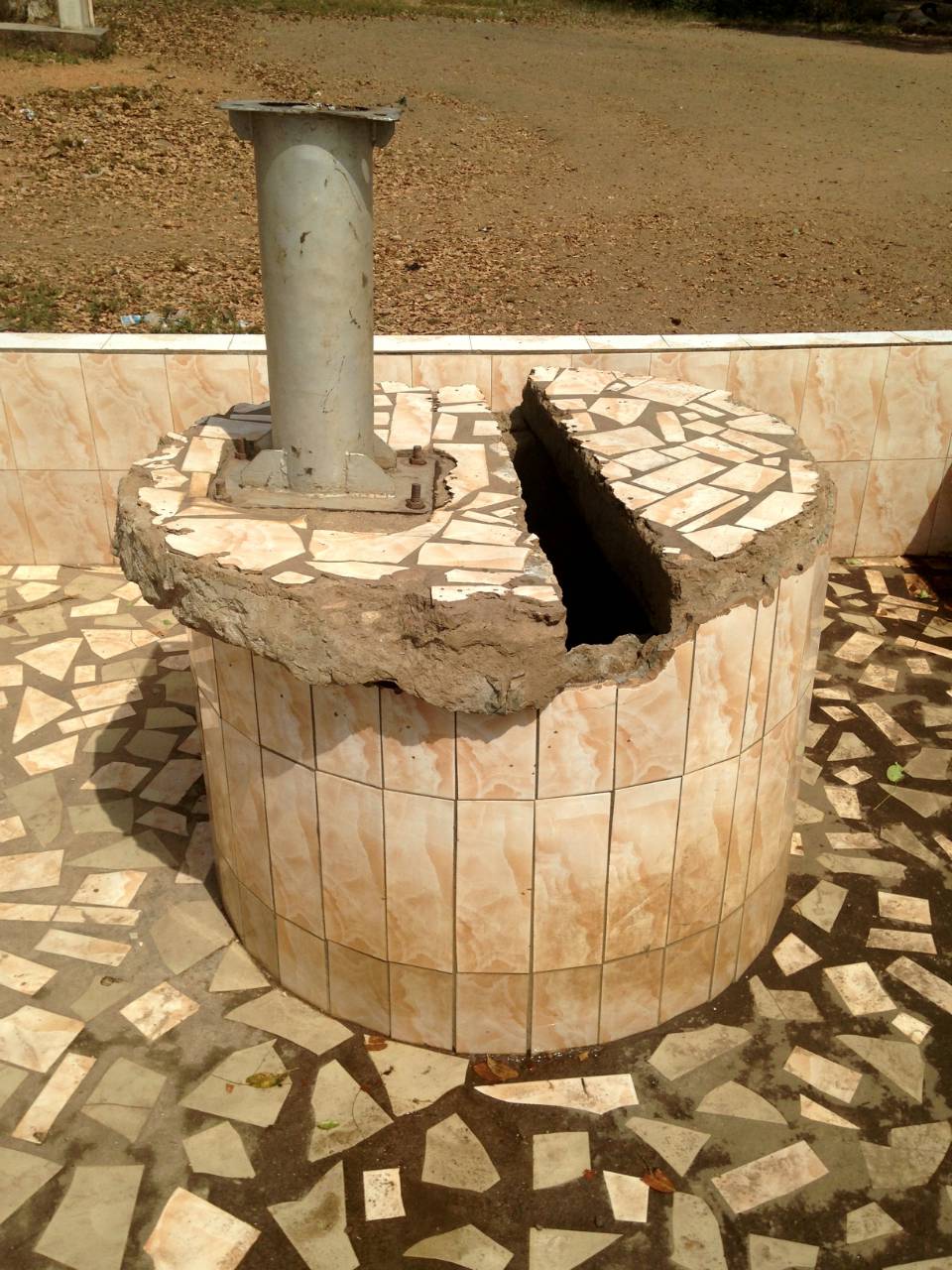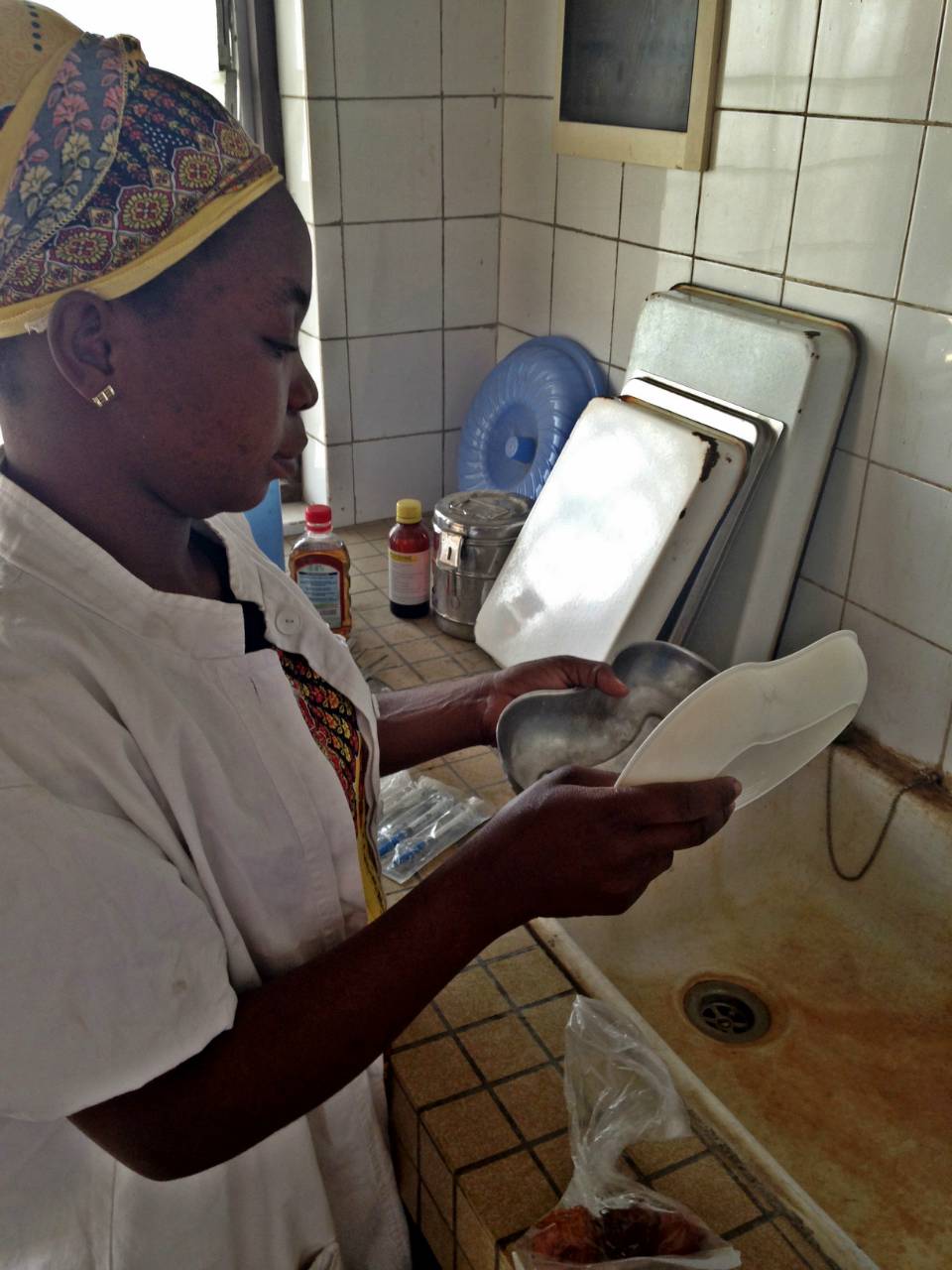This project is made possible through the partnership of WATER CHARITY and the NATIONAL PEACE CORPS ASSOCIATION. ![]()
This project has been completed. To read about the conclusion, CLICK HERE.
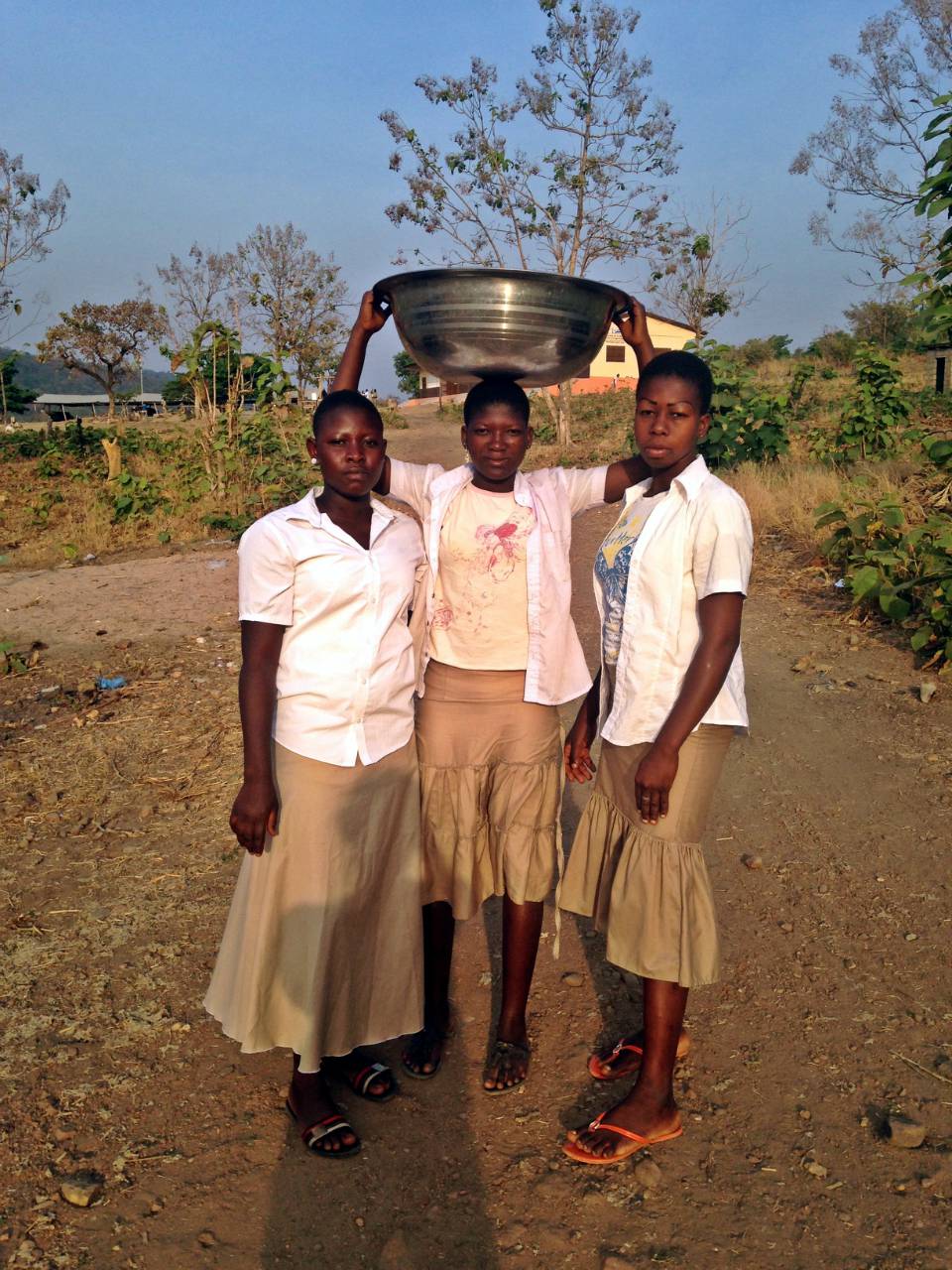 Location
Location
This project summary has been redacted for security reasons to omit the specific project location.
Xxxxxxxxxx, Tchaoudjo Prefecture, Central Region, Togo
Community Description
The village of Xxxxxxxxxx is located in the Northeast corner of the Central Region of Togo. It is 27 km from the regional capital of Sokode and is nestled in the mountains between Sokode and the Benin border. Nearly all inhabitants are ethnically Kotikoli Muslim, and speak the language Tem. A minority of people (mostly educated males) speaks French.
The clinic and middle school serve Xxxxxxxxxx and six other surrounding villages. The total clinic catchment area is close to 4,000 people. The village of Xxxxxxxxxx itself has roughly 1,000 inhabitants. Most everyone in Xxxxxxxxxx is a farmer, owning at most 2 hectares of land, and participates in small animal husbandry, including raising goats, sheep, and chickens. Additionally, the village is known for its traditional fabrics made by local weavers.
The biggest health issues are malaria and diarrheal diseases. There is one pump in Xxxxxxxxxx. Most people get their water from open wells or the nearby stream, all of which usually dry up during the dry season.
In terms of fetching water, showering, finding vegetables, and other daily activities, living in Xxxxxxxxxx is difficult. However, although the villagers are isolated and live in poverty, they are open, friendly, welcoming, and eager to learn.
Problem Addressed
There is no clean water available at the Xxxxxxxxxx clinic and no water source at the Xxxxxxxxxx middle school. The lack of clean, running water at the clinic lowers the overall level of hygiene at the clinic, especially during births. The clinic staff makes village women, oftentimes the family members of women giving birth, bring water (oftentimes from the non-potable, open well nearby) to the delivery room to clean the room, supplies, bloody rags, etc. and to provide drinking water for the pregnant mother.
A lack of running water also makes it difficult for health practitioners to wash their hands regularly. There is no available drinking water for clinic staff and patients. Pregnant women are often forced to return to their homes during their pre-natal consultations to bring drinking water in order to take their anti-malarial medications. If the women come from outlying villages, they are forced to buy water to take their medications, which can be a barrier to some women.
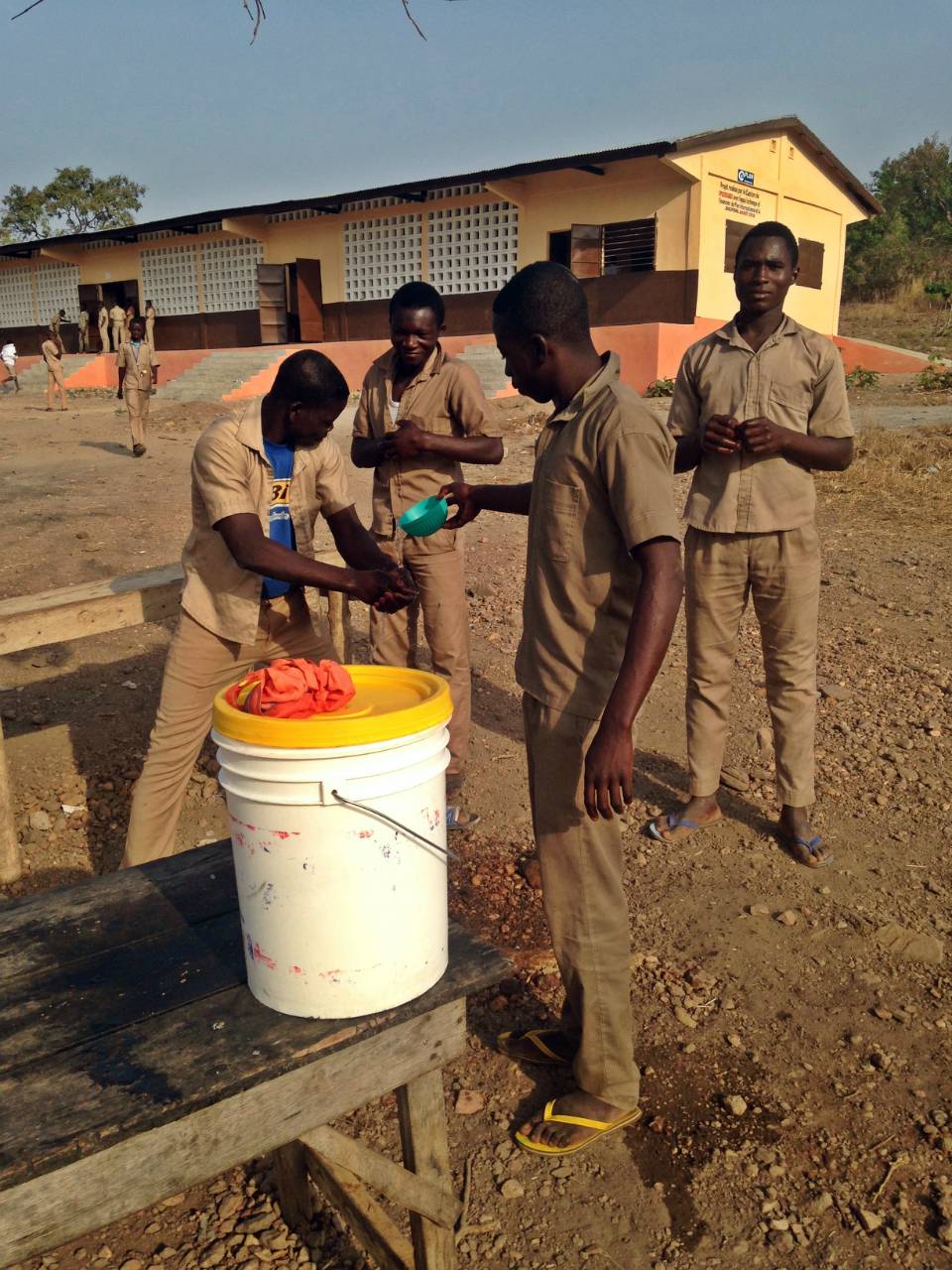 The lack of a water source at the Xxxxxxxxxx middle school also presents a plethora of problems. Teachers and students alike do not wash their hands after defecating or before eating during recess. Food vendors do not have access to water to wash their hands before serving food to the children or to appropriately wash dishes between student use. The nurse has often seen waves of diarrheal diseases among students that stem from these food vendors’ unsanitary practices.
The lack of a water source at the Xxxxxxxxxx middle school also presents a plethora of problems. Teachers and students alike do not wash their hands after defecating or before eating during recess. Food vendors do not have access to water to wash their hands before serving food to the children or to appropriately wash dishes between student use. The nurse has often seen waves of diarrheal diseases among students that stem from these food vendors’ unsanitary practices.
Children also have no water to drink during the school day. Some students are forced to go without water all day, especially those who cannot return home during lunch because they live too far away. If a child is thirsty, they must walk to the stream 1 km away to drink dirty river water or ask households beside the school to give water.
Handwashing efforts at the school have failed because of this water access issue. Teachers even make female students fetch water from the stream during class, making them even more behind in their studies.
The Xxxxxxxxxx clinic was constructed in 2000. The original clinic construction included a tower and pipes to provide running water. Villagers or clinic staff would manually pump water every morning, which would be propelled into the sinks at the clinic.
When the clinic and water system was built, the workers stopped digging once they hit rock. Consequently, the running water was only available during the rainy season and dried up completely during the dry season. The running water system stopped working entirely in 2013. An Islamic NGO recently built a shallow well with a manual pump head mechanism close to the clinic. However, this pump head mechanism continuously breaks, and the well is not deep enough to sustain itself during the dry season.
Project Description
This project is to rebuild the water system at the clinic and provide a new water source at the middle school by constructing a well.
The project funds will be used to dig this well deeper (with help from the Islamic NGO) and connect new piping to the original tower. The water will then be pumped into the clinic sinks using electricity (the village got electricity last year).
The second part of the project will build a new 15-meter well at the Xxxxxxxxxx middle school. The well will be covered with a manual pump head mechanism. A well-experienced plumber from Sokode is in charge of all technical construction. Villagers will provide unskilled labor (e.g., digging the well deeper, withdrawing water, sand collection at the riverbed, etc.).
The president of the Village Development Committee is the project leader and will coordinate the clinic and school water committees. The clinic nurse and middle school teachers will co-implement trainings with the PCV.
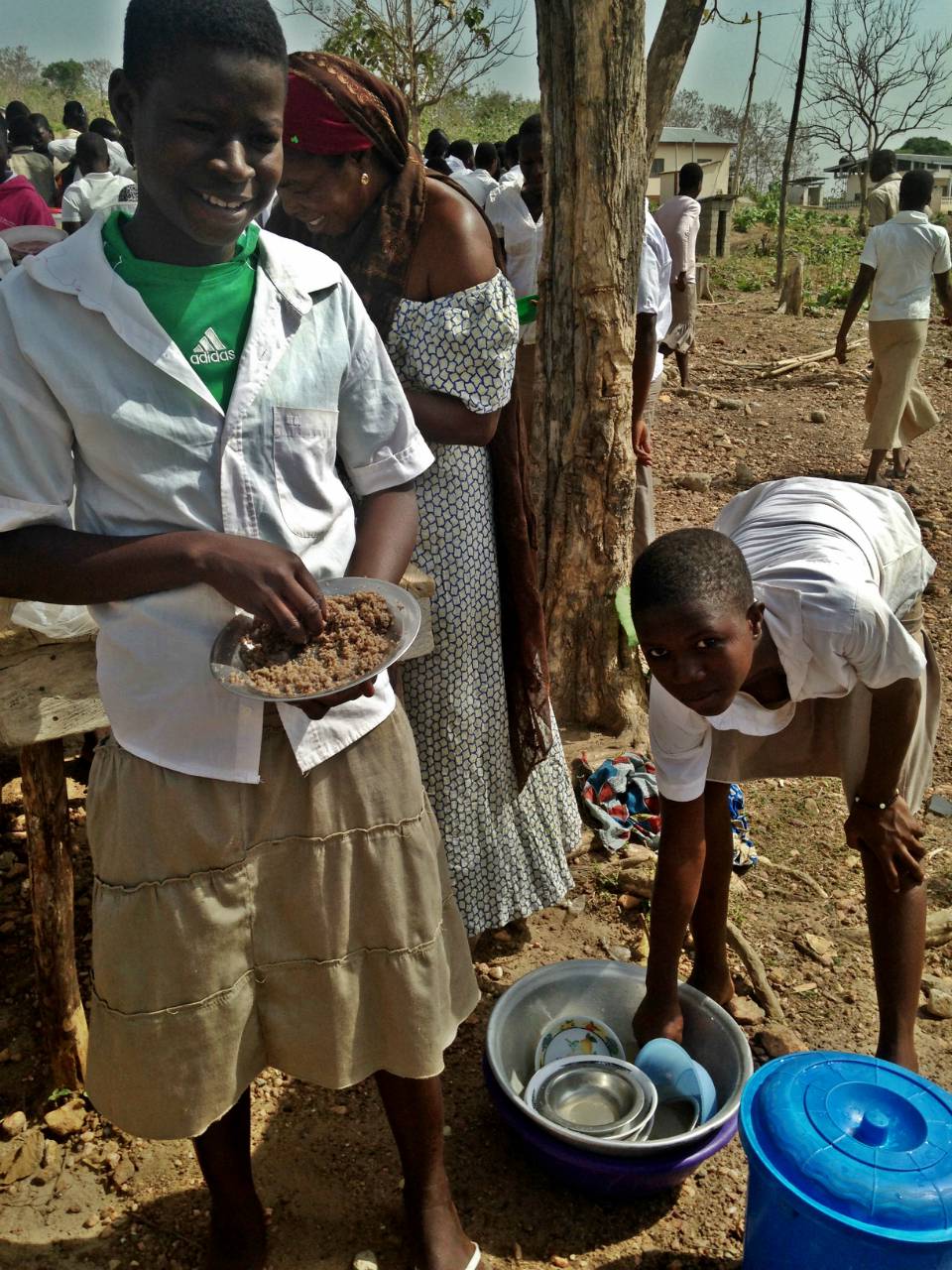 The already-established Committee for the Organization and Overview of Community Health will serve as the water committee for the repaired clinic water system. Several members of the parent teacher association, student leaders, and teachers, as well as the school director, will serve on the school water committee.
The already-established Committee for the Organization and Overview of Community Health will serve as the water committee for the repaired clinic water system. Several members of the parent teacher association, student leaders, and teachers, as well as the school director, will serve on the school water committee.
Both water communities will collect money periodically to make sure that there is always a current sum in their account to fix the systems at any given moment. The electricity bill for the improved clinic water system will be paid out of pharmacy and consultation revenues.
This project includes the following trainings: intensive WASH training (including treatment of water) with both water committees, handwashing and handwashing station construction training with the entire student body, and a gender equitable practices training with the middle school teachers. Fifteen water committee members (of the nineteen total for the two committees) will be able to identify at least three critical times to wash hands, as evidenced by pre- and post-tests.
Project Impact
4,000 inhabitants in the canton, including 260 students at the middle school, will benefit from the project.
Peace Corps Volunteer Directing Project
Y. Ryder
Monitoring and Maintenance
By participating in the water committee, five parents will strengthen the community-school relationship. Four students will also serve on the school water committee. These students will demonstrate leadership by motivating other students and food vendors to maintain school hygiene.
Observation logs will be used to monitor handwashing and water treatment at the school, improved hygiene by the school vendors, handwashing and water treatment at the clinic, and implementation of gender equitable practices by teachers in the classroom. By the end of the project, at least three teachers will have demonstrated gender equitable practices in the classroom.
The two water committees, one at the middle school and the other at the clinic, will ensure maintenance and sustainability of the project. The clinic water committee will be molded into the already well-established COGES committee. Future repairs to the water system will be paid for by the COGES’s reserve account, which comes from pharmacy funds and village collections.
Because the new running water system will be powered through electricity, the clinic’s monthly electricity bill will increase slightly. The clinic will still be responsible for paying all electricity bills.
The water committee at the middle school will be made up mostly of members from the Parent Teachers’ Association, an active group in village. Repairs will come from the Middle School account, which gets money from school fees. The school water committee will collect money from students and their parents at the beginning of the project to add to the school account, and will continue this collection annually.
Both teachers and students in the water committee will ensure that water is treated before drinking and arrange work schedules to fill all classroom water buckets and handwashing stations.
Let Girls Learn
Women and girls are disproportionately affected by the lack of water at the clinic and middle school. More specifically, the lack of water at the school has spiraling negative effects on girls’ education in Xxxxxxxxxx.
Girls are often pulled out of class to fetch water. This trip can take up to thirty minutes, especially if they are going to the nearby stream. Lack of water also makes girls late for school because they have to fetch water for the classrooms or school food vendors in the morning before class.
Girls are less likely to come to school during their menstrual cycles because they know they will not have access to clean water. Because they do not come to school full-time, they become very far behind and must drop out or retake a grade level.
This project will not only provide a water source at the school but will also teach the teachers how to implement gender-equitable practices in the classroom. One teacher and the director of the middle school have already attended a Student Friendly Schools training and will help me facilitate the gender training and classroom observations.
The Water Charity participation in this project has been paid for by an anonymous donor.
Conclusion of Clinic and Middle School Water System Project – Togo
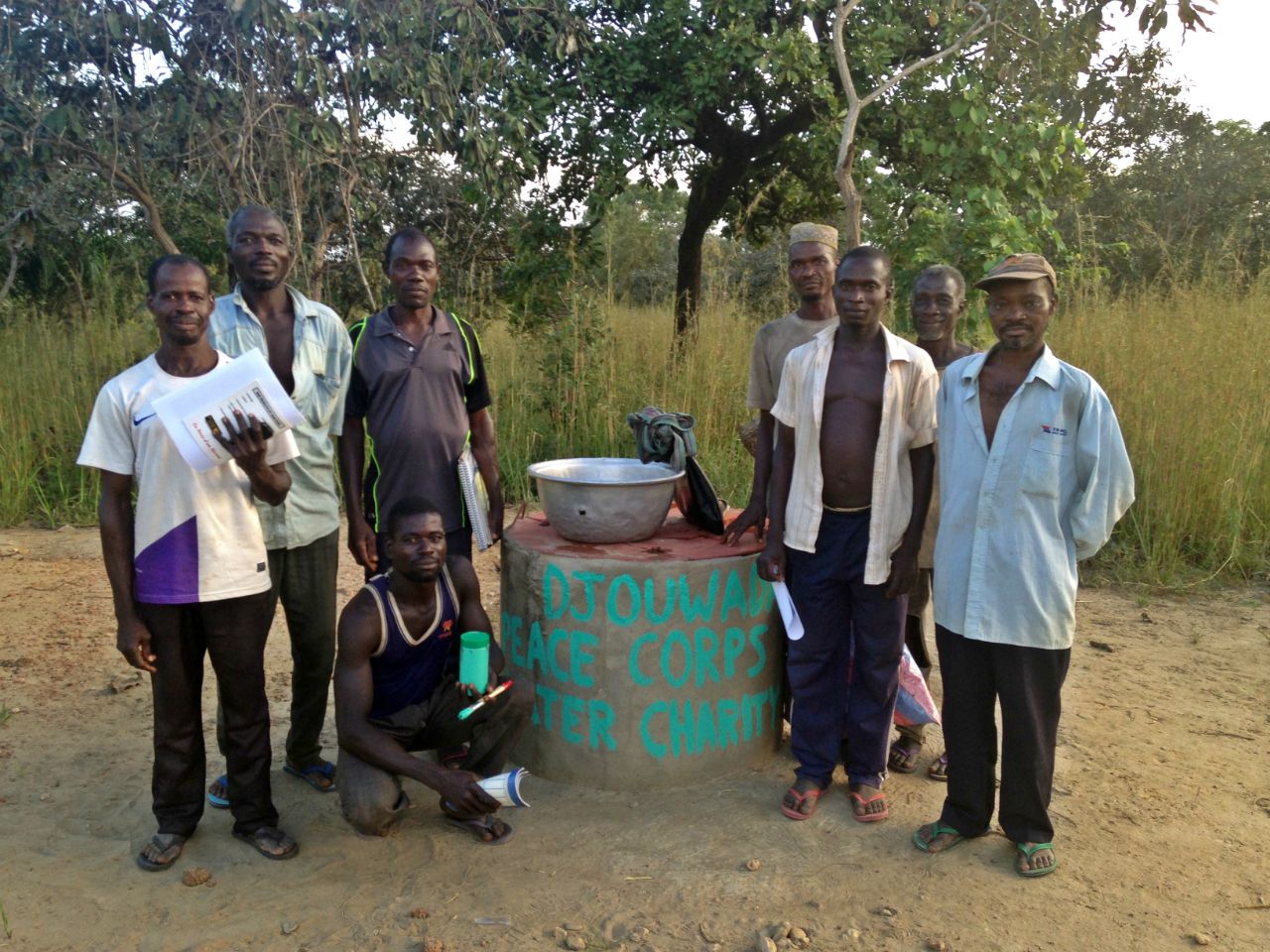 This project has been completed under the direction of Peace Corps Volunteer Yoonhee Ryder. To read about the start of the project, CLICK HERE.
This project has been completed under the direction of Peace Corps Volunteer Yoonhee Ryder. To read about the start of the project, CLICK HERE.
The project was designed to rebuild the water system at the clinic and provide a new water source at the middle school by constructing a well.
Yoonhee reports:
Specific Work Done
This project was made up of three main components. First, two 13-meter wells were built in the isolated village of Djouwada in the Kpassouade county of the Central Region of Togo. Before construction of these wells, the Djouwada community members would mostly use the nearby river as their sole source of water and, during the dry season, were forced to dig boreholes in the dried-up riverbed to find water. The people of Djouwada were extremely motivated to implement this project and now continuously use these new wells.
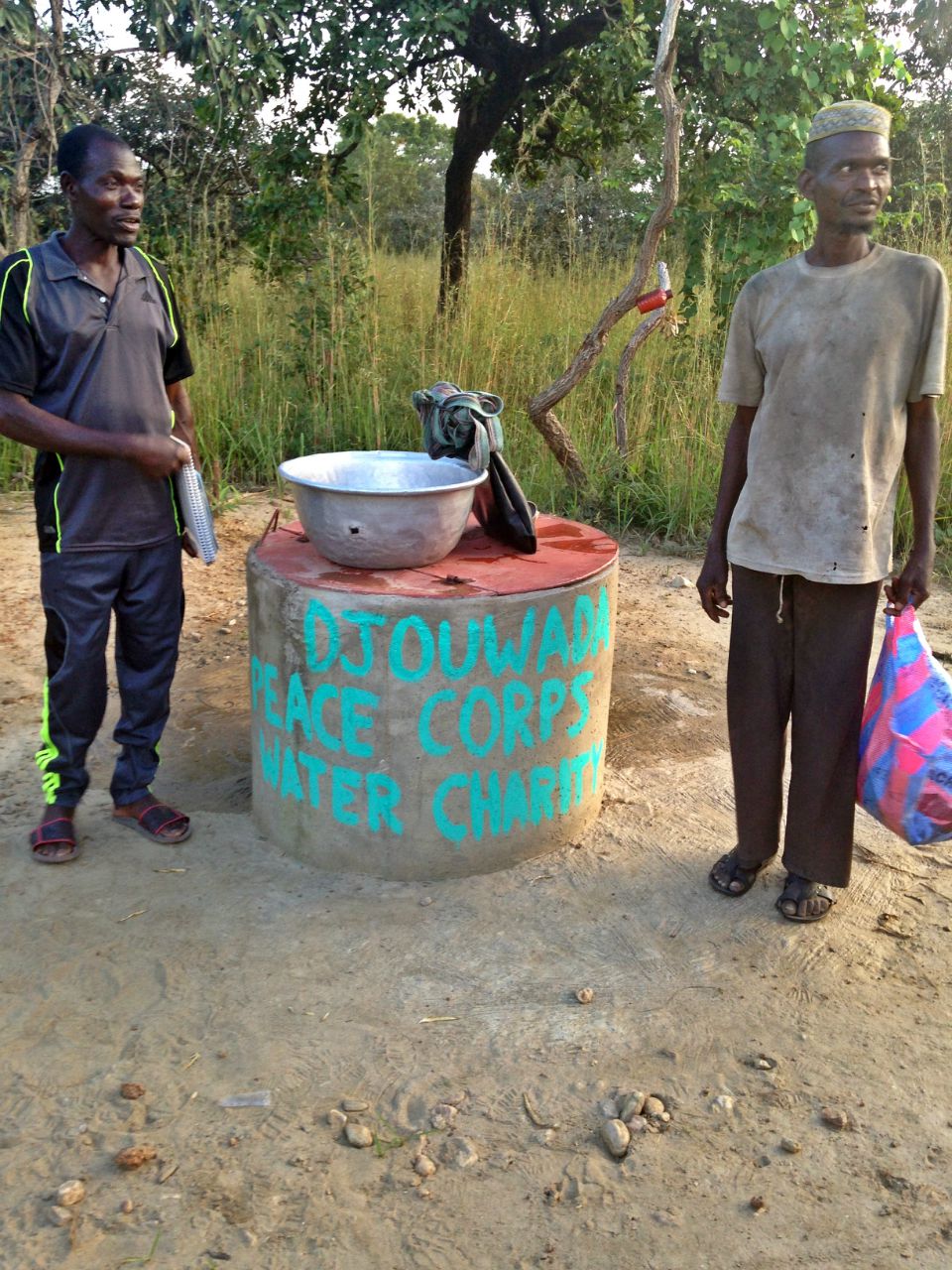 Second, the Community Health Worker (CHW) in Djouwada and I conducted baseline surveys on water treatment and access and subsequently followed up / conducted health talks with homes that did not treat their water. The Djouwada water committee (established in March 2016) is responsible for encouraging and monitoring water treatment at the household level as well as keeping up with well maintenance.
Second, the Community Health Worker (CHW) in Djouwada and I conducted baseline surveys on water treatment and access and subsequently followed up / conducted health talks with homes that did not treat their water. The Djouwada water committee (established in March 2016) is responsible for encouraging and monitoring water treatment at the household level as well as keeping up with well maintenance.
Third, in collaboration with the local middle school, the community of Kpassouade set up four treated drinking water stations. Students now have increased access to clean drinking water during school. I implemented a comprehensive WASH training with each of the classes at the Kpassouade middle school as well as conducted a school-wide demonstration on how to treat water using chlorination tablets.
Because the lack of water disproportionately impacted young girls, this LGL project had a strong gender focus. I conducted a gender equity training with the teachers at the Kpassouade middle school. Four of the five participating teachers demonstrated gender equitable practices in the classroom at the 4-month follow-up.
Scope of the Project
Due to unforeseeable circumstances and changes imposed by the Togolese government, we had to change the original location of this project***. I worked closely with the director of the Hydraulic office who was able to find the funding to build pumps at both the Kpassouade CEG and clinic. This is why the community decided to decrease the scope of the project and instead build two wells in Djouwada.
Although the scope of the project changed, many people were still impacted by the new wells, water treatment campaign, and gender trainings at the school. In fact, the updated project addressed a more dire need in the community.
 Capacity and Skills Built
Capacity and Skills Built
Many members of the community have increased their capacity and/or skills because of this project. First, the hired plumber, as well as the many community members who helped with labor, increased their capacity to build deep wells. The water committee in Djouwada developed project management and monitoring skills. All the community members in Djouwada were either directly or indirectly trained on water treatment thus increasing their capacity to maintain healthy families and reduce diarrheal diseases. Many community members, including the female students, also increased their capacity to save time in their day for healthy behaviors or studying by using the new, easily accessible wells.
The community health worker in Djouwada, Mr. PIRE Saman, worked closely with me throughout the project and increased his survey implementation and technical health skills. This project increased the capacity of teachers to implement gender equitable practices inside and outside the classroom through our training. The students also increased their own capacity and that of their families to stay healthy by learning about water treatment, handwashing, traditional latrines, and handwashing stations. The county development/project management committee improved their project implementation skills and learned more about project sustainability.
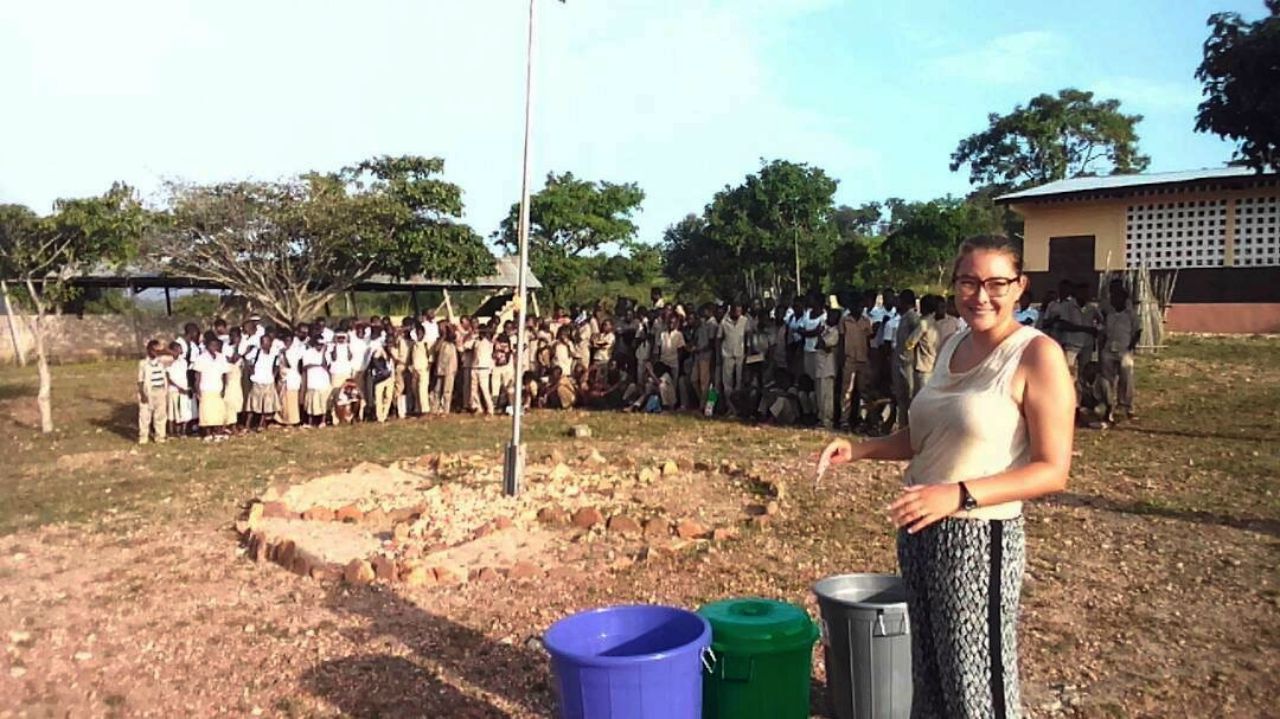 Sustainability
Sustainability
The Djouwada water committee will ensure sustainability of this project. Future repairs to the water system will be paid for by the committee’s already established reserve account (FUSEC Togo Sokode).
The total in the account is currently 30,000 CFA. This 30,000 CFA comes directly from community member collections. This FUSEC bank account also serves as the official bank account used to secure potential future pump projects with the Hydraulic department.
The water committee in Djouwada will continue to have monthly meetings do regularly discuss and monitor household water treatment and well maintenance. Mr. OURO SAMA Abdoulaye, the math and physical education teacher, will help monitor sustained gender equitable practices in the school. New drinking water stations at the school are able to hold large quantities of water (unlike “tippy-taps”) and will be used by students starting in the academic year 2017-2018.
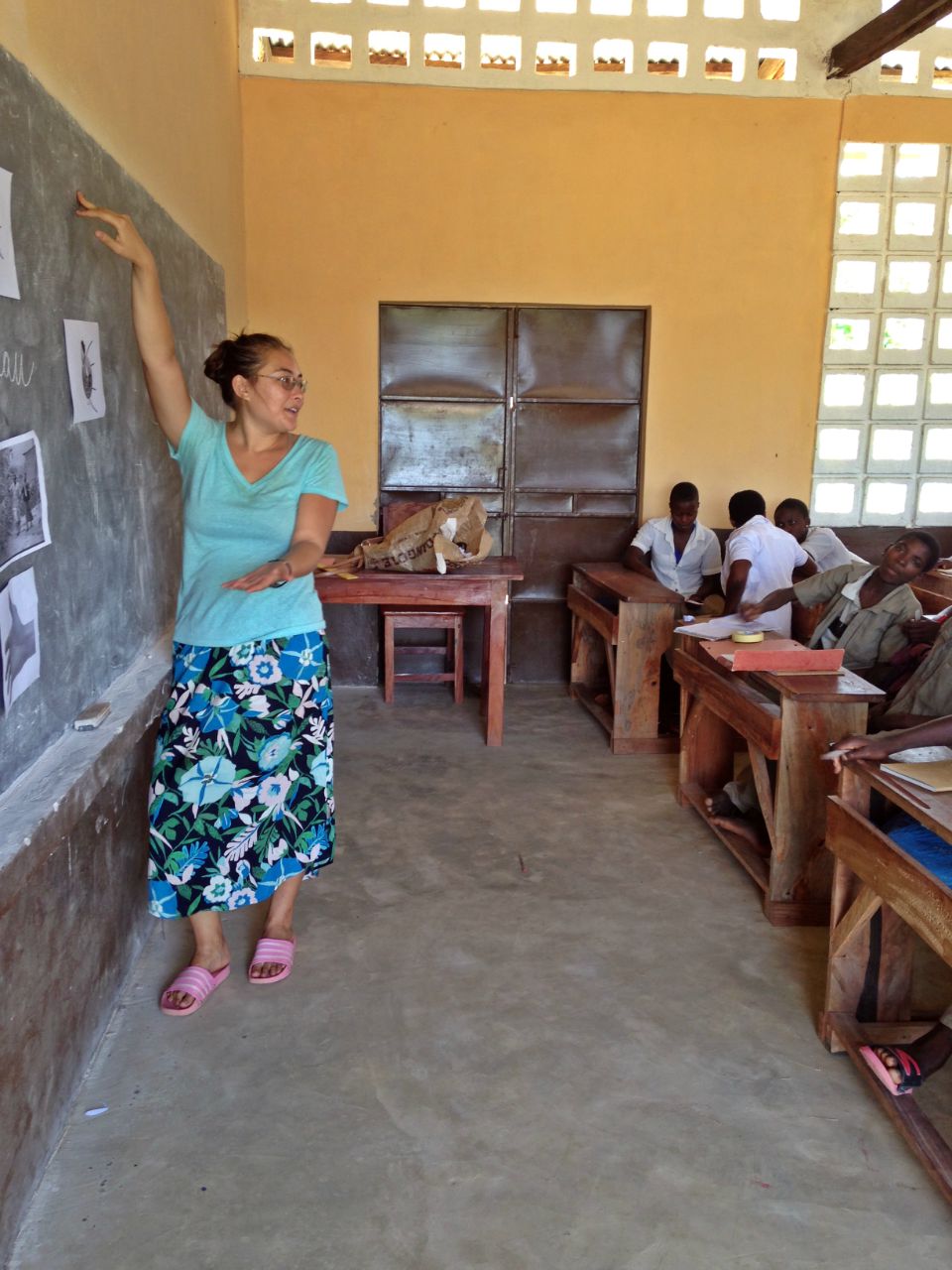 Timeline: How the work progressed
Timeline: How the work progressed
March 2016- started Djouwada water committee
April-May 2017- construction of two wells in Djouwada
June 2017- gender equitable practices training with teachers at the Kpassouade middle school. WASH trainings with all classes at Kpassouade middle school.
June-October 2017- water treatment surveys and trainings in Djouwada
October 2017- follow-up gender equitable practices application in the classroom
October 2017- water treatment training/demo with students at the Kpassouade middle school; set up treated drinking water stations in each classroom.
End Results By the end of the project
1. 2 deep wells installed
2. Increased the capacity of the water committee, staff of the local middle school, and the project development committee
3. Increased application of gender equitable practices at the local middle school
4. 4 drinking water stations installed at the local middle school
5. Reduced the average water collection time in Djouwada by over 10 minutes
6. Reduced the number of people using river water by 66.6%
7. Reached approx. 250 community members through water treatment home visits
8. Implemented a school-wide WASH training with students
9. Implemented a school-wide water treatment demonstration with students
10. Implemented a Student Friendly Schools training with teachers
11. Implemented water treatment trainings with Djouwada community members
Comments from the Community / Testimonials
Mr. BUTCHO, Chief of Djouwada
Mr. Butcho wants to sincerely thank Water Charity for providing water to the community of Djouwada. The village of Djouwada was suffering, especially in the dry season, because they did not have water. These wells have made the villagers healthier in the long run and save time and effort in collecting water. Water Charity has raised the quality of life in Djouwada and provided something so essential, because no one can do anything without water.
Mr. OURO SAMA Abdoulaye, teacher at the Kpassouade Middle School
Mr. Abdoulaye really took the gender training to heart. He decided to create and train a girls’ handball team from the village to compete in the national handball tournament in July 2017. Even though he was not paid, and it was during the summer vacation, Mr. Abdoulaye spent hours coaching the team and organizing logistics for the tournament. The Kpassouade team was the only team from a small village participating in the tournament and beat the team from Lome, the capital of Togo. The Kpassouade team won 2nd place. All the girls on the team demonstrated increased self-confidence and leadership. Mr. Abdoulaye then organized a large party inviting the entire village to celebrate the victory and provide an opportunity for younger girls to see female role models in the village.
We extend our thanks to Yoonhee for completing this important project.
